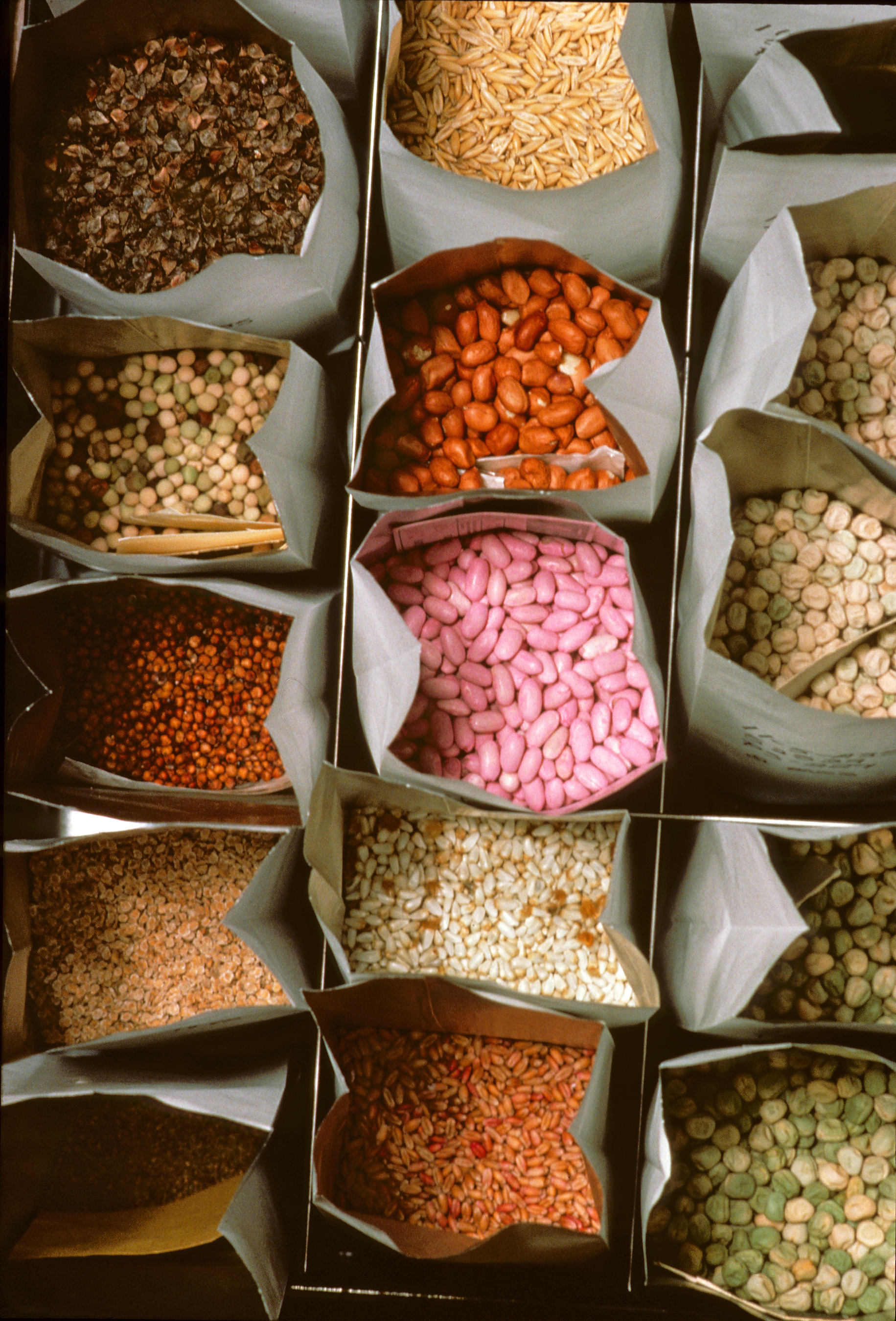Dan Barber’s Seed Company Seeks to Sow the ‘Democratization of Flavor’ by Civil Eats

Photo taken from Foodtank.org in their published interview with Barber.
Chef Dan Barber at Blue Hill restaurants in New York City and upstate at Stone Barns, along with Cornell University plant breeder Michael Mazourek and upstate New York seed farmer Matthew Goldfarb, have launched Row 7 Seed Co; with the mission to “overturn the conventional wisdom about seeds, food, and flavor.”
“Row 7 hopes to sell seeds that are easier to grow in farms and gardens, taste better and offer more nutrition, and are meant to increase seed diversity, accessibility, and affordability from the ground up…if it doesn’t thrive in both kitchen and field, or exhibit both deliciousness and scalability, it won’t make the cut.” – Civil Eats

Photo taken from Organic Seed Alliance website.
The company currently offers seven different organic seeds, which are organically bred from inception to release- unlike most organic seeds, which are produced from conventional, chemical-intensive plants and later treated organically.
Planting organic is important considering some studies show that crops grown organically produce higher yields than crops that are grown from conventional seeds. That is an important distinction for farmers wishing to select crops that will thrive in new climate conditions, with less water, and other factors as consequence of global warming including drought and higher temperatures. Furthermore, farmers and chefs might want to abide and encourage each other to growing and buying biodiverse crops which yield food and seeds that can adapt and evolve to a changing environment.
Row 7 Seed Company aims to do just that- fill in the (right now) gap between what consumers buy and eat from what will surely help build biodiversity and resiliency in agriculture, farming and the environment; by “developing, promoting and selling seeds for new vegetable and grain varieties that might otherwise never find an audience. Plenty of companies, small and large, work with university plant breeders to distribute new seed varieties. But Row 7 aims to give breeders the chance to reach a big market with their most esoteric and groundbreaking work — by connecting them with chefs.” – New York Times, Continue reading the main story.
Native Communities are Fighting for a More Inclusive Farm Bill
“While the overwhelming majority of farm operators in the U.S. are white, among farmers of color an estimated 30 percent are Native American or Alaska Native, and together they generate $3.3 billion in sales each year. But Native producers have little access to critically important resources such as credit, insurance, or loan programs, and that fact limits their ability to be fully autonomous. Hoping to ensure that the voices of the nation’s original caretakers are heard, Native American groups have come together to advocate for more inclusion, greater funding, and extensive revisions in the upcoming farm bill, which will replace the soon-to-expire Agricultural Act of 2014. For nearly a year, the Native Farm Bill Coalition—made up of more than 22 tribes, tribal organizations, and nonprofits across the country—has been meeting to craft policy for the $489 billion omnibus bill, which oversees food assistance for more than 46 million low-income Americans, as well as food safety, agriculture insurance and losses, agricultural research, and rural housing and economic development.” -Civil Eats
Genetically-modified Corn Used in U.S. Has Been Found to Cause Infection
“The central regulator of GMOs in Europe is the GMO Panel of the European Food Safety Authority (EFSA). EFSA is required to consult with member states over its evaluations. In the case of MON89034, an insecticidal GMO maize containing a Cry toxin, EFSA received numerous warnings from member states over its interpretation of rat experiments. In these experiments, animals fed the insecticidal Bt maize developed kidney and bladder problems. EFSA ignored the warnings.” Published on Monday March 5th, 2018, by Independent Science News: “EU’s GMO Regulator Ignored Human Health Warnings Over a Monsanto Insecticidal Corn.” This news article was written by Claire Robinson, editor of GMWatch. NOTE: The corn event in question, MON89034, is sold and grown in the US. Please share this article if you find it valuable.

Comments are closed.